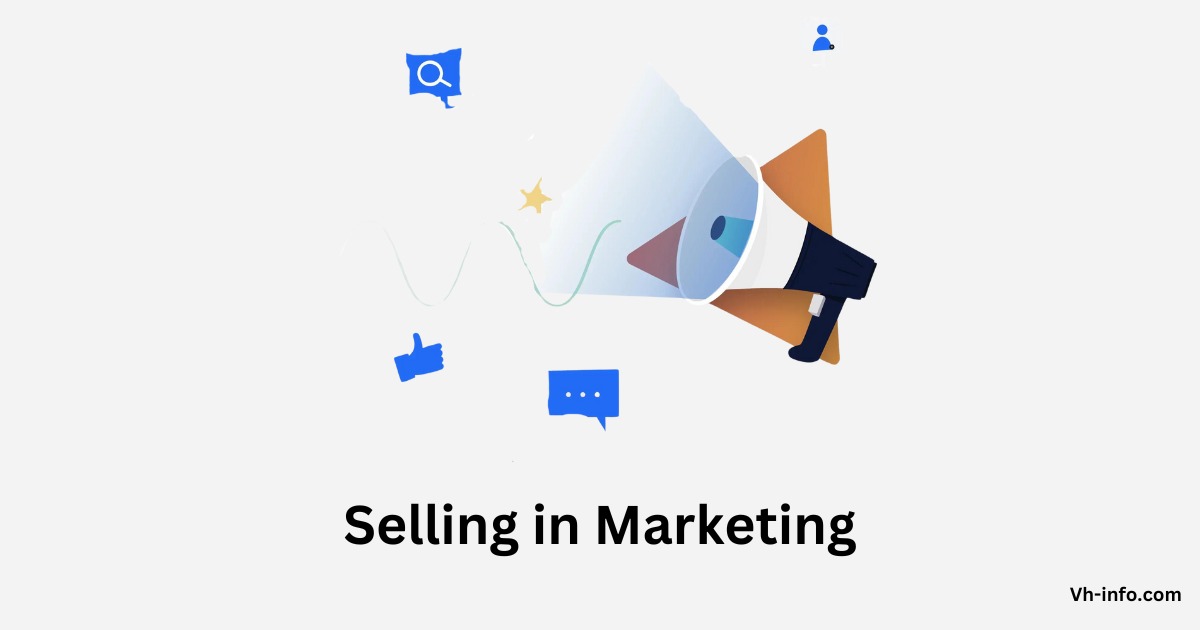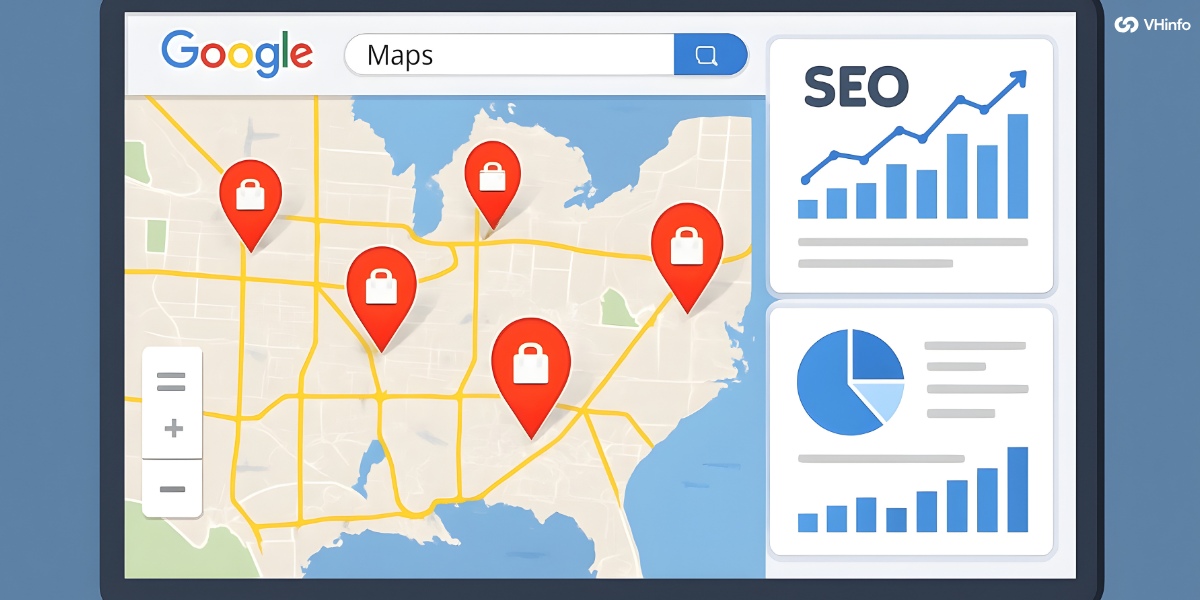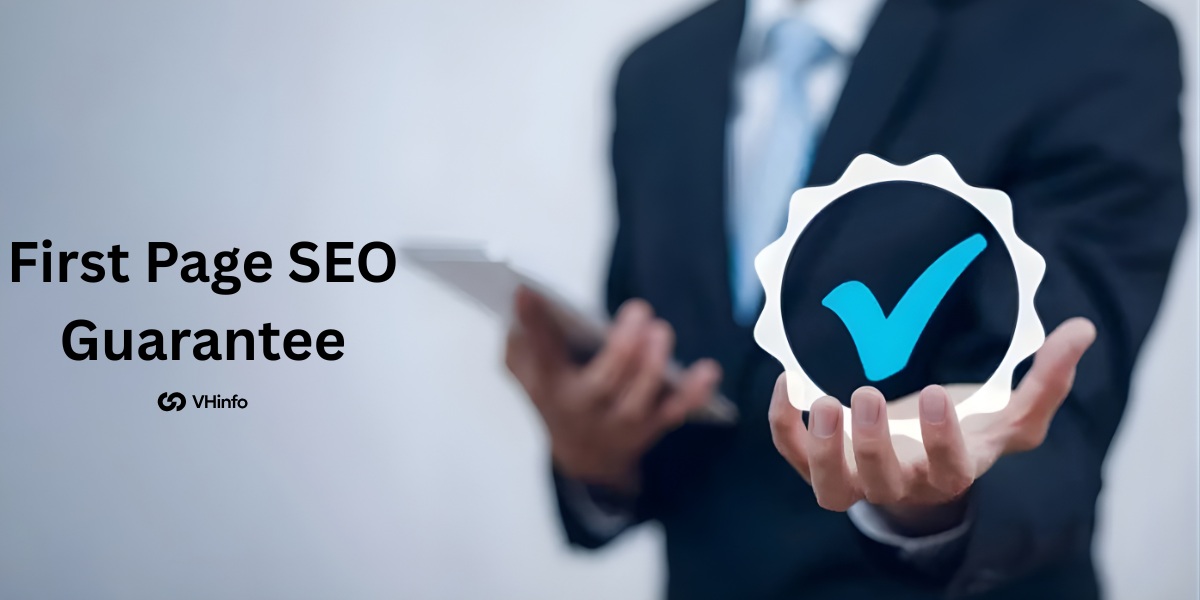In today’s competitive business landscape, selling plays a pivotal role in the success of any organization.
As an integral part of the marketing process, selling involves a wide range of strategies and techniques aimed at persuading customers to purchase products or services.
At VH Info, we understand the importance of effective selling in marketing and how it can drive growth for SaaS companies.
In this comprehensive guide, we’ll dive deep into the concept of selling, its role in marketing, and provide actionable insights to help you optimize your sales efforts.
What is Selling in Marketing?
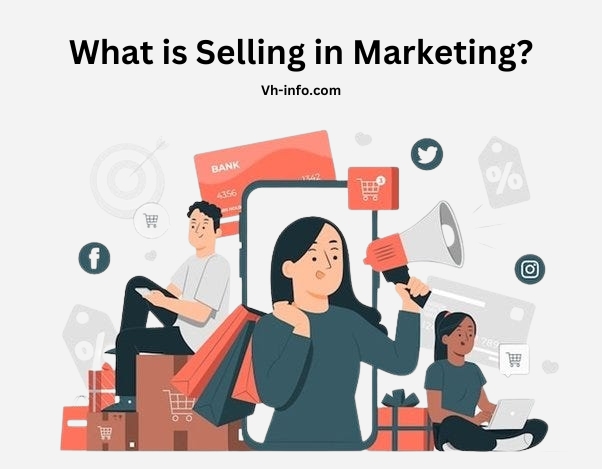
Selling in marketing refers to the process of persuading potential customers to buy a product or service. It involves communicating the value proposition of an offering and convincing the target market to make a purchase decision. The selling process is a critical component of the overall marketing strategy, as it directly impacts revenue generation and business growth.
Selling vs Marketing
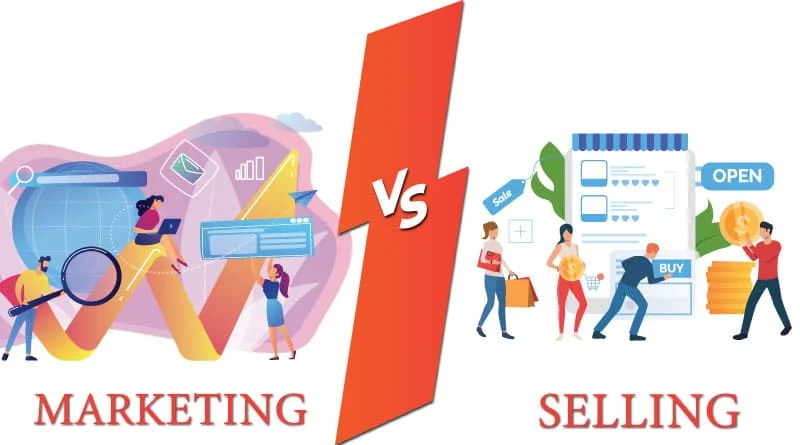
While selling and marketing are closely related, they are distinct concepts.
Marketing encompasses a broad range of activities aimed at identifying customer needs, developing products or services to meet those needs, and promoting them to the target market.
Selling, on the other hand, focuses specifically on the act of persuading customers to make a purchase.
In essence, selling is a subset of the marketing process.
Role of Selling in the Marketing Process
Selling plays a crucial role in the marketing process by converting potential customers into actual buyers. It bridges the gap between the marketing efforts that generate leads and the final purchase decision. Effective selling helps businesses build relationships with customers, understand their needs, and provide solutions that address their pain points.
How Selling Works?
The selling process typically involves several stages, including prospecting, qualifying leads, presenting the product or service, handling objections, and closing the sale. Sales representatives engage with potential customers through various channels, such as face-to-face meetings, phone calls, email, and social media, to guide them through the sales funnel.
Importance of Selling in Marketing
Selling is essential for the success of any business, as it directly impacts revenue generation and profitability.
Effective selling helps companies:
- Increase market share and customer base
- Build strong customer relationships and loyalty
- Gain a competitive edge in the market
- Drive innovation and product development based on customer feedback
Different Types of Selling

Based on Target Audience:
There are several different types of selling, each with its own characteristics and objectives. Understanding these types of selling can help businesses tailor their sales approach to meet the specific needs of their target audience.
- Personal Selling: Personal selling involves face-to-face interaction between a sales representative and a potential customer. It requires building relationships and providing personalized solutions to meet the customer’s needs. This type of selling is often used for high-value products or services that require a more in-depth understanding and explanation.
- Outside Sales: Outside sales involves sales representatives physically visiting customers or potential customers at their location. This can include in-person meetings, product demonstrations, or sales presentations. Outside sales representatives may travel extensively to meet with clients and build relationships.
- Direct Sales: Direct sales involve selling products or services directly to consumers without the involvement of a middleman. This can include door-to-door sales, telemarketing, or selling through a company’s website or online platform. Direct sales allow for direct communication and relationship-building with customers.
- Consultative Selling: Consultative selling involves acting as a consultant to the customer, understanding their needs, and offering customized solutions. This type of selling requires deep product knowledge, the ability to ask probing questions, and a focus on building long-term relationships.
- Inside Sales: Inside sales involve selling products or services remotely, often through phone calls or online communication channels. Inside sales representatives may use video conferencing or other remote communication tools to engage with customers and close sales.
Each type of selling has its own advantages and requires different skill sets. Businesses can choose the approach that best aligns with their products, target audience, and overall sales objectives.
Based on Approach & Techniques:
There are various types of selling, each with its own approach and techniques:
- Transactional selling: Focuses on short-term sales and quick transactions
- Consultative selling: Emphasizes understanding customer needs and providing tailored solutions
- Solution selling: Identifies customer challenges and offers products or services as solutions
- Relationship selling: Prioritizes building long-term relationships with customers
What are Some Best Practices for Selling in Marketing?
To excel in selling, businesses should adopt the following best practices:
- Understand your target market and their needs
- Develop a clear value proposition for your products or services
- Train your sales team on effective selling techniques
- Leverage technology and sales software to streamline the selling process
- Focus on building genuine relationships with customers
- Continuously gather feedback and adapt your selling strategies
Selling Strategies and Techniques
Effective selling requires a combination of strategies and techniques, such as:
- Active listening to understand customer needs and pain points
- Asking open-ended questions to gather valuable insights
- Demonstrating the value of your products or services through storytelling and case studies
- Handling objections with empathy and providing solutions
- Utilizing social proof and testimonials to build trust and credibility
How can Selling in Marketing be Integrated with other Strategies?
Selling in marketing can be seamlessly integrated with other strategies to create a holistic approach:
- Content marketing: Develop relevant content that educates and nurtures leads throughout the sales funnel
- Email marketing: Use targeted email campaigns to engage prospects and guide them towards a purchase decision
- Social media marketing: Leverage social platforms to build brand awareness, engage with potential customers, generate leads, and manage multiple accounts.
- Marketing automation: Streamline the selling process by automating repetitive tasks and personalizing customer interactions
Examples of Selling in Marketing
- A SaaS company using consultative selling to understand a client’s business challenges and recommending a customized software solution
- A real estate agent leveraging relationship selling to build trust with potential buyers and sellers
- An e-commerce store using email marketing to nurture leads and encourage them to make a purchase
- A B2B company using social media to engage with decision-makers and showcase their expertise in the industry
FAQ’s:
What are the Key Skills Required for Effective Selling?
Effective selling requires a combination of skills, including active listening, empathy, communication, persuasion, and adaptability. Sales representatives must be able to understand customer needs, articulate the value proposition of their products or services, and build trust with potential buyers.
How can Businesses Improve their Selling Efforts?
To improve selling efforts, businesses should focus on:
- Providing comprehensive training and support to their sales team
- Leveraging technology and sales software to streamline processes and gain insights
- Continuously gathering customer feedback and adapting selling strategies accordingly
- Fostering a customer-centric culture that prioritizes building genuine relationships
How has Selling Evolved in the Digital Age of Marketing?
In the digital age, selling has become more dynamic and data-driven. Sales teams now rely on channels like social media, email, and video conferencing to connect with prospects in real time. Using an interactive lead generation tool online enables more personalized outreach by transforming static content into engaging experiences that capture high-quality leads and drive conversions.
What Role does Technology Play in Modern Selling?
Technology plays a crucial role in modern selling by enabling sales teams to:
- Automate repetitive tasks and streamline processes
- Gain valuable insights into customer behaviour and preferences
- Enhance outreach and follow-up through AI SDR.
- Personalize interactions and deliver targeted content
- Collaborate effectively across teams and geographies
How can Selling Contribute to Long-Term Customer Relationships?
Selling, when done right, can contribute to long-term customer relationships by:
- Focusing on understanding and addressing customer needs rather than just closing a sale
- Providing exceptional customer service and support throughout the sales process and beyond
- Continuously engaging with customers and gathering feedback to improve products and services
- Building trust and credibility through transparent and ethical selling practices
Is Personal Selling Still Relevant in Today’s Marketing Landscape?
Yes, personal selling remains relevant in today’s marketing landscape. While digital channels have transformed the way businesses reach customers, personal selling allows for more targeted and personalized interactions. Face-to-face meetings, phone calls, and video conferences enable sales representatives to build rapport, address specific concerns, and provide tailored solutions
Conclusion
Selling is a vital component of the marketing process, directly impacting the success and growth of businesses.
By understanding the importance of selling, adopting best practices, and leveraging the right tools and techniques, companies can effectively persuade customers to make a purchase decision.
At VH Info, we specialize in helping SaaS companies optimize their selling efforts through our comprehensive SaaS link building services, White Label Link building service and SEO for Startups.
By creating high-quality content, securing guest posts on authoritative websites, and fixing broken links, we enable our clients to improve their search engine rankings, drive targeted traffic, and ultimately, boost their sales.
Contact us today to learn how VH Info can help you take your SaaS selling strategies to the next level.
